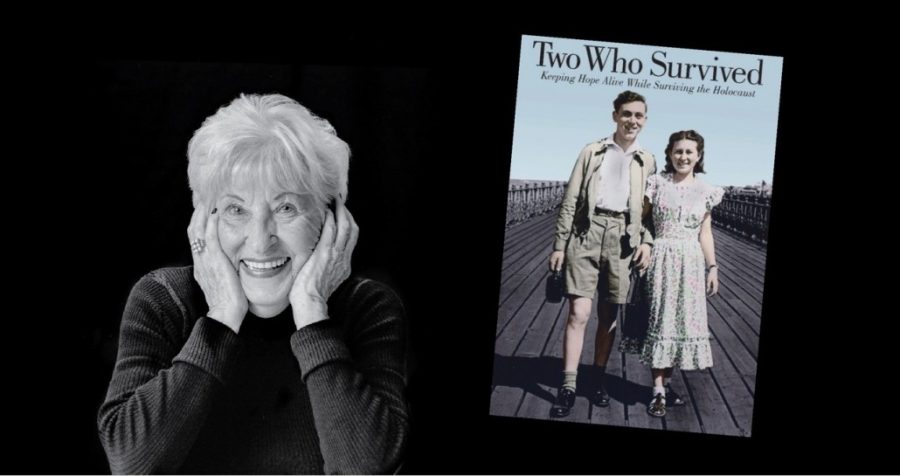Rose Schindler shares Holocaust survival story
April 20, 2022
Rose Schindler, a Holocaust survivor, spoke to the campus community on April 11. As part of CSUSM’s Arts & Lectures event series, the panel was free for students, $5 for faculty, staff, and alumni, and $10 for community members.
Rose’s story begins in Czechoslovakia. Rose lived on a farm with her father, mother, aunt, and seven siblings. Life was good. But as World War II progressed, Nazi officials arrived and occupied her village. Everything changed. Jewish businesses were closed, and non-Jewish neighbors became hostile. The day after Passover, officials told the Jewish residents to prepare to leave. They were entitled to just one bag and instructed to leave all valuables behind.
Eventually, all the Jewish people in her town were rounded up. With no idea where they were going, they traveled by wagon to a train station. At the station, they were stuffed into crowded, windowless cattle cars. When Rose arrived at Auschwitz, a Jewish worker asked her how old she was. She let him know her age– just 14 years old.
“Tell them you’re 18,” he told her. When later asked her age by a German officer, Rose insisted she was 18. Then, her family was separated into lines: her father and older brother in one line, her mother and younger siblings in another. Rose was grouped alongside her older sisters. She never saw her mother or younger siblings again. Had Rose told the truth about her age, she would have been sent straight to the gas chamber.
On her second day at Auschwitz, Rose would, by chance, reunite with her father Solomon and older brother Philip. Selected for slave labor, Solomon and Philip had been temporarily assigned to Auschwitz. But their assignment was brief, and after their departure, she never saw them again. This was not uncommon— Rose told the audience that out of the “600 Jews in her village, only 18 to 20 came back.”
Despite living through the horrific conditions of Auschwitz and losing a majority of her family, Rose never gave up hope. Rose and her older sisters Helen and Judy were liberated at Freudenthal, a slave labor camp. She went on to live in the United Kingdom, where she received rehabilitation resources. It’s also where she met Max, a fellow Holocaust survivor and her future husband. They later moved to New York and then to San Diego, where she currently resides.
Rose’s message is an important one– we must stand up to injustice. The interim dean of CHABSS, Elizabeth Matthews, gave a short speech at the end of the event. She said, “We need to remember our responsibility here. . . We now carry this memory with us. We need to make sure that we share what we’ve learned with everyone around us. Because we do need to stop this from happening [again].”
For more information on Rose Schindler’s novel, visit https://twowhosurvived.com. To support The Butterfly Project, a Holocaust education organization Rose recommends, visit https://thebutterflyprojectnow.org.


